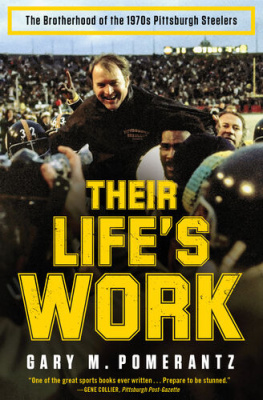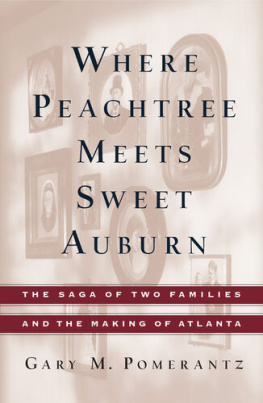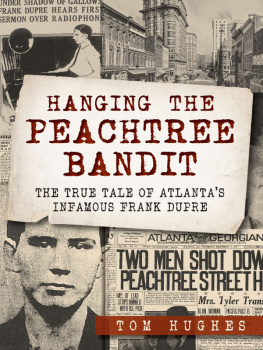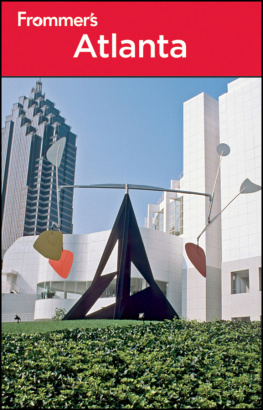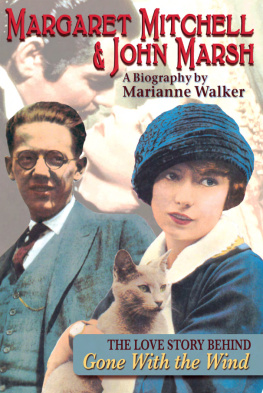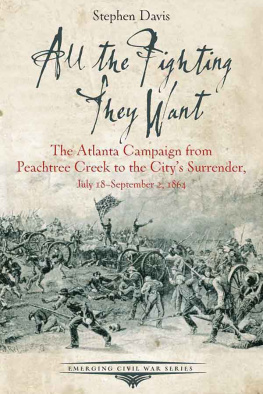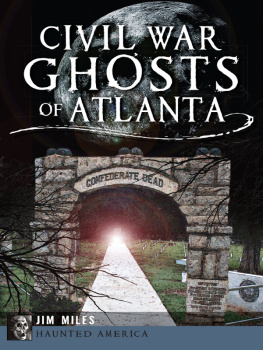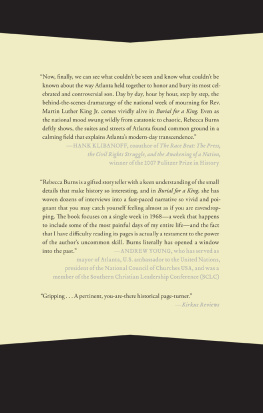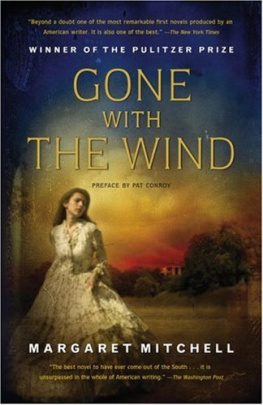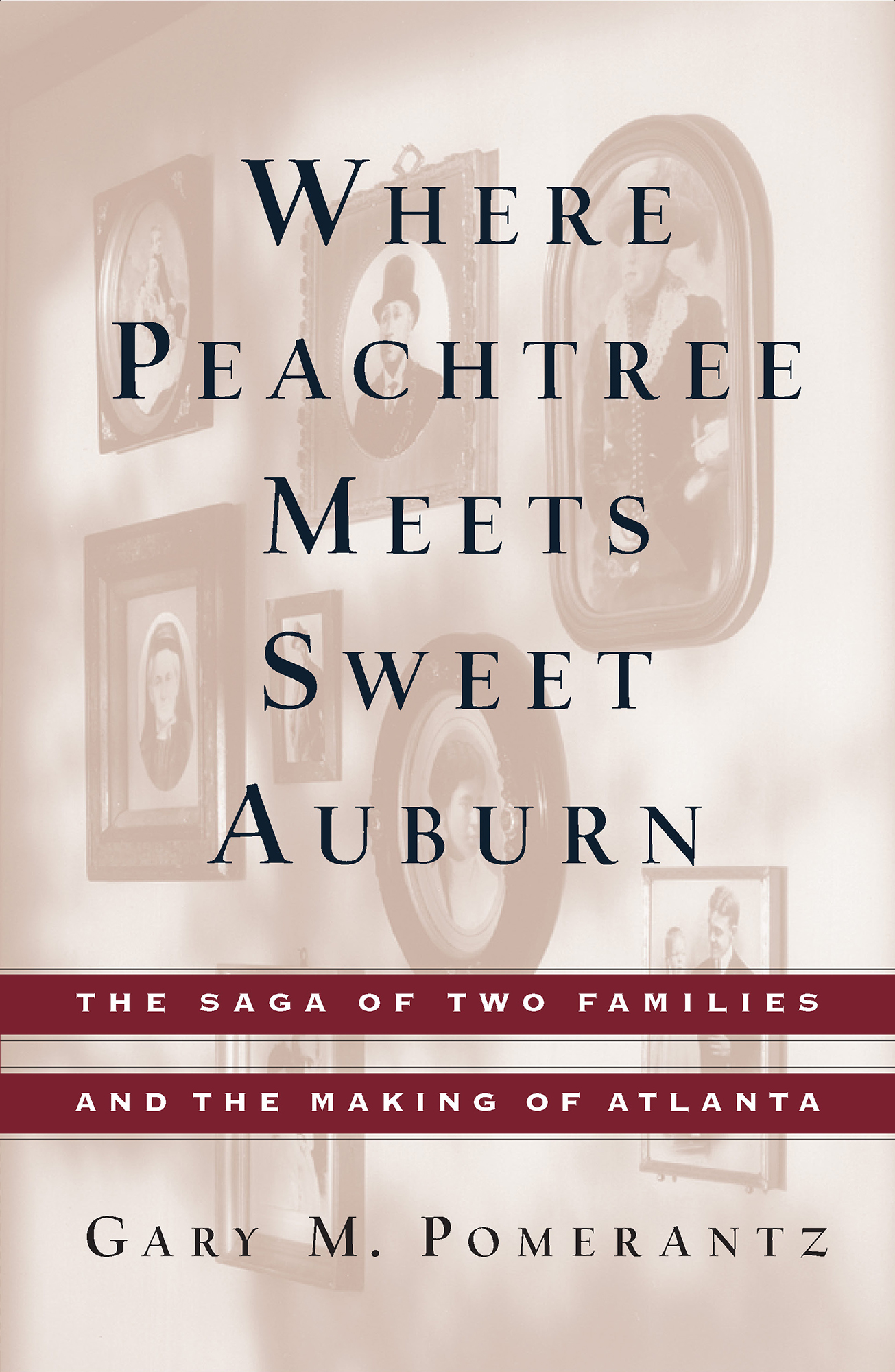
Where Peachtree Meets Sweet Auburn
The Saga of Two Families and the Making of Atlanta
Gary M. Pomerantz

A LISA DREW BOOK/SCRIBNER
1230 Avenue of the Americas
New York, NY 10020
www.SimonandSchuster.com
Copyright 1996 by Gary M. Pomerantz
All rights reserved, including the right of reproduction in whole or in part in any form.
Scribner and design are trademarks of Simon & Schuster Inc.
Set in Caledonia
DESIGNED BY ERICH HOBBING
Jacket design by Evan Gaffney
Jacket photograph by Grant Peterson
Author photograph by Joey Ivansco
Library of Congress Cataloging-in-Publication Data
Pomerantz, Gary.
Where Peachtree meets Sweet Auburn : the saga of two families and the making of Atlanta / Gary M. Pomerantz.
p. cm.
A Lisa Drew Book.
Includes bibliographical references (p.) and index.
1. Atlanta (Ga.)Biography. 2. Dobbs family. 3. Allen family. 4. Afro-AmericansGeorgiaAtlantaHistory20th century. 5. Atlanta (Ga.)Race relations. 6. Atlanta (Ga.)History.
F294.A853A28 1996
920.0758231dc20 96-10399
CIP
ISBN 0-684-80717-3
ISBN 978-1-9821-8716-3 (eBook)
For Carrie, naturally, and for Ross and Win, our Atlantans
In the spring of 1856, a free person of color named Mary Combs paid $250 for a tract of land that today is marked precisely where Peachtree meets Sweet Auburn. She sold it six years later for $500 and used the money to emancipate her enslaved husband.
An Atlanta pioneer, Mary Combs knew how to make a profit. She also knew about freedom.
H ISTORIC T IME L INE

- 1843 Named Terminus by the Western & Atlantic Railroad only five years before, city renamed Marthasville to honor daughter of Georgia Gov. Wilson Lumpkin.
- 1845 City renamed Atlantafeminine of Atlanticby J. Edgar Thomson, Pennsylvania-born chief engineer of the Georgia Railroad.
- 1851 Farmer Josiah Dobbs dies near Kennesaw, Georgia, 25 miles north of Atlanta. Among his inventory are 13 slaves. The most valuable, a black field hand named Wesley, appraised at $800.
- 1864 Gen. William T. Shermans Union forces destroy the city, signaling the death knell for the Old South. Five churches are saved by the pleading of Father Thomas OReilly.
- 1867 Congress passes Reconstruction Act, making Atlanta headquarters of the Third Military District.
- 1895 At the Cotton States and International Exposition in Piedmont Park, Booker T. Washington delivers a historic racial doctrine. Known by critics as the Atlanta Compromise, he says, In all things that are purely social, we can be as separate as the fingers, yet one as the hand in all things essential to mutual progress.
- 1906 Fanned by sensationalized local reports of black men raping white women, mobs of whites erupt in a race riot. About two dozen blacks, and several whites, die. A white mob drops the bodies of two blacks at the foot of the Henry Grady statue.
- 1915 Vigilantes seize Leo Frank, a Jewish businessman convicted of murdering factory girl Mary Phagan, from his cell in Milledgeville and drive him to Marietta. There, they hang him from a tree.
- 1926 The Forward Atlanta campaign, spurred by civic leader Ivan Allen, Sr., lures to Atlanta, over a four-year period, 679 new factories, warehouses and sales offices with nearly 17,000 employees.
- 1939Gone With the Wind premieres at the Loews Grand theater on Peachtree Street. Atlanta author Margaret Mitchell attends.
- 1947 The death of governor-elect Eugene Talmadge in Atlanta in December 1946 leads to a scramble for a replacement. With the state constitution unclear about succession, three men lay claim to being Georgias governor. One, Herman Talmadge, son of the governor-elect, storms the statehouse office, and his men change the locks. He serves 63 days before the courts declare Lt. Gov. M. E. Thompson as governor.
- 1948 Mayor William Hartsfield installs the citys first eight black policemen; their lockers are at the Butler Street YMCA, apart from the downtown police precinct.
- 1949 John Wesley Dobbs and A. T. Walden, powerhouses along Auburn Avenue as leaders of the black Republicans and black Democrats in Atlanta, co-found the Atlanta Negro Voters League.
- 1958 A bomb rips through the Temple, a Jewish synagogue, on Peachtree Street. The bomb causes substantial structural damage, but no one is hurt.
- 1960 Authorities jail the Rev. Martin Luther King, Jr., who joins Atlanta University Center students in protest at Richs department store.
- 1961 Ivan Allen, Jr., president of the Atlanta Chamber of Commerce, successfully negotiates a plan with black leaders to desegregate the citys lunch counters in concert with school desegregation.
- 1961 On the day of John Wesley Dobbss death, Atlanta schools are desegregated peacefully.
- 1964 Brandishing a pistol, Lester Maddox chases three blacks from his Pickrick restaurant near Georgia Tech, in defiance of the new Civil Rights Act. An all-white jury later clears Maddox on charges of disorderly conduct, requiring only 44 minutes of deliberation.
- 1966 Mayor Ivan Allen, Jr., quiets a Summerhill riot stirred by Stokely Carmichael, leader of the Student Non-Violent Coordinating Committee (SNCC). As Allen stands atop a car to address the crowd, blacks rock it side to side and he topples to the ground.
- 1968 More than 150,000 people march through the streets of the city behind a mule-drawn cart that carries the bier of the slain Rev. Martin Luther King, Jr. A memorial service is held at Morehouse College.
- 1973 Maynard Holbrook Jackson, Jr., a 35-year-old Atlanta attorney and grandson of John Wesley Dobbs, becomes the first black mayor of a major southern city.
- 1980 Hartsfield Atlanta International Airport, physically the largest in the nation, opens its new midfield terminal, constructed using Mayor Maynard Jacksons controversial joint-venture program. This program aims to award 25 percent of all municipal contracts to minorities.
- 1982 A jury convicts Wayne B. Williams, an unemployed 23-year-old black music promoter, of two murders. Authorities implicate Williams in 22 other murders of young blacks, ending Atlantas Missing & Murdered case.
- 1990 Atlanta wins the bid to host the 1996 Summer Olympics, the centennial celebration of the modern Games.
P REFACE

My research for this book has taught me what the people of Atlanta have known for a century and more: there are two Atlantas.
The old-line southern families, white and wealthy, lived in an Atlanta that developed along its most famous thoroughfare, Peachtree Street.

